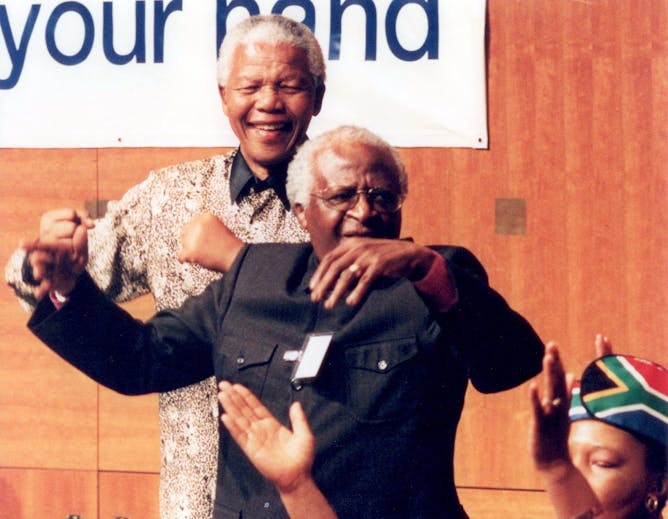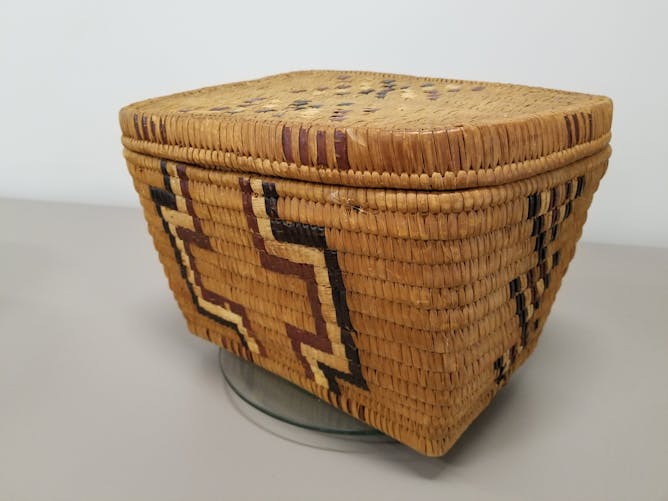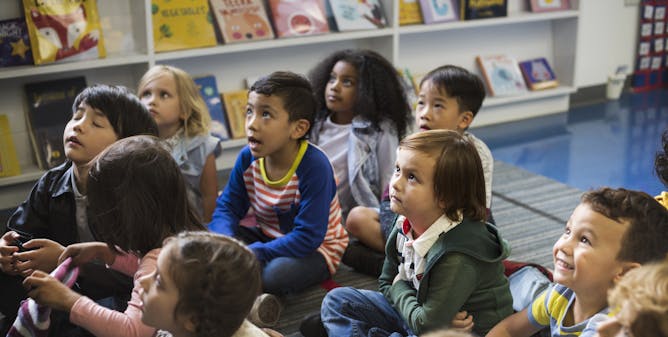|
Canada is still dealing with the aftermath of the Truth and Reconciliation Commission, which addressed historic injustices perpetrated against the country’s Indigenous peoples. But do truth commissions actually accomplish what they set out to do: heal divided nations? Today in The Conversation Canada, Bonny Ibhawoh of McMaster University writes about dozens of similar commissions held around the world and examines how effective they have been in reconciling historic wrongs.
We’ve got another TRC-related story that looks at the commission’s recommendation which called on academic institutions and their faculty members to make meaningful contributions to the reconciliation process. Veselin Jungic of Simon Fraser University explains a fascinating community-led partnership project where his university is using mathematics to explore the tradition of Indigenous basketweaving.
The makeup of classrooms around the world has transformed as international migration patterns have changed. We’ve got an interesting report from three education experts who look at the concept of “culturally responsive teaching,” which is concerned with teaching methods and practices that recognize the importance of including students’ cultural backgrounds in all aspects of learning.
And finally…almost 10 million people around the world are diagnosed with dementia every year. Geriatric psychiatrist Nicole Anderson of the University of Toronto tells us about a growing body of evidence that’s “discovering early-life, mid-life and late-life contributors to dementia risk that we can do something about — either for our own or our children’s future brain health.”
Regards,
|

In this October 1998 photo, Nelson Mandela and Desmond Tutu dance after Tutu handed over the final report of South Africa’s Truth and Reconciliation Commission in Pretoria.
(AP Photo/Zoe Selsky)
Bonny Ibhawoh, McMaster University
Wherever there is an ugly, unresolved injustice pulling at the fabric of a society, there is an opportunity to haul it out in public and deal with it through a truth commission.
|

Tla'amin Basket.
Alex Sutcliffe
Veselin Jungic, Simon Fraser University
In an attempt to respond to the TRC's calls to action, academic disciplines such as mathematics can contribute through community-led partnerships with Indigenous peoples.
|

In increasingly diverse societies, teaching must recognize the importance of affirming students’ cultural backgrounds in all aspects of learning.
Shutterstock
Louis Volante, Brock University; Christopher DeLuca, Queen's University, Ontario; Don A. Klinger, University of Waikato
Culturally-responsive student assessment and evaluation is key to student success in diverse, globalized societies.
|

If you engage in cognitively stimulating activities in midlife, such as reading and playing games, you can reduce dementia risk by about 26 per cent, according to research.
(Unsplash/Rawpixel)
Nicole Anderson, University of Toronto
Research is revealing many ways in which we can reduce our dementia risks -- from eating a Mediterranean diet and exercising, to playing games and studying for degrees.
|

Le secteur minier est la principale source de revenus au Burkina Faso. Pour contrer l'insécurité, les minières peuvent faire beaucoup mieux en redistribuant la richesse, en créant des emplois et en achetant local.
Shutterstock
Bonnie Campbell, Université du Québec à Montréal (UQAM)
Pour contrer l'insécurité, le secteur minier, principale source de revenus au Burkina Faso, peut faire beaucoup mieux en redistribuant la richesse, en créant des emplois et en stimulant l'achat local.
|